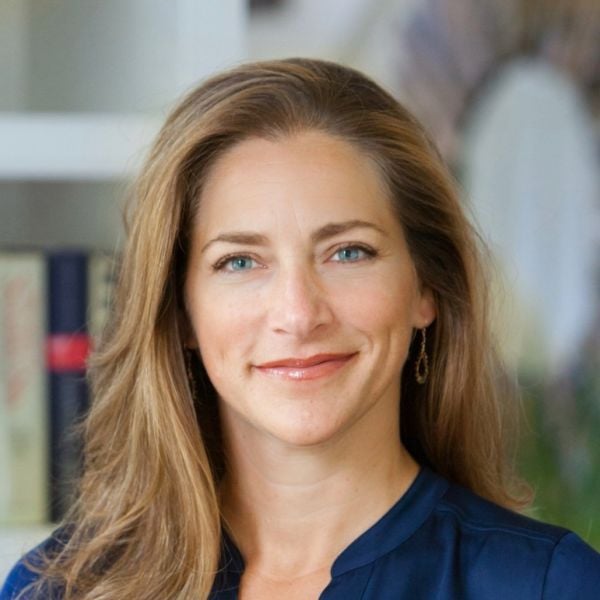In This Issue
What We’re Reading
What We’re Seeing
What We’re Hearing
This Month at MCAAD
As spring unfolds, the Milken Institute team is gearing up for a fresh start as we bid farewell to our temporary offices and return to our permanent home at the corner of Pennsylvania Avenue and 15th Street in Washington, DC. While construction work hums along in various parts of our campus, we're thrilled to see the finishing touches on spaces like our offices and conference center. These changes promise exciting new opportunities for collaboration and growth.
This month, we're also turning our gaze toward upcoming events like Tax Day and Earth Day. These national and global commitments prompt us to reflect on their implications for our well-being and fulfillment.
Just like the budding plants in our gardens, the seeds we've planted in our work are beginning to sprout. But we know that nurturing and diligence are key to seeing them blossom fully, both on our campus and in the wider world. Stay tuned as we continue to cultivate ideas, convene thought leaders, and tackle the pressing social and economic challenges of today.
Rachel Goslins
Executive Director & Chief Creative Officer
Milken Center for Advancing the American Dream, Milken Institute
What We’re Reading
The pooling of public resources and spending them on public priorities is one of the building blocks of the United States. Taxes fund public services like education, health care, and infrastructure…but how did Tax Day come to be? It dates back to the Civil War when Congress enacted the Revenue Act of 1861, introducing a tax on personal incomes to fund war expenses. For an in-depth exploration of the history of federal income tax, check out resources at the Library of Congress.
Access to capital and financial empowerment are core to the American Dream and to people’s aspirations globally. We’ll explore more on the history of financial systems in the United States and the challenges of capitalism in our upcoming exhibitions. Regardless of where you live, economic stability should not be out of reach.
Looking internationally, the Milken Institute recently released the Global Opportunity Index 2024: Attracting Foreign Investment. This report highlights the global economic landscape that helps businesses make foreign investment decisions and helps governments identify policies for attracting foreign capital.
What We’re Seeing
This month is a time to act on not only our financial well-being but also our planet’s well-being. Earth Day, which falls on April 22, “marks the anniversary of the birth of the modern environmental movement in 1970,” writes Earth Day Network. The website includes fascinating videos on the origins of Earth Day, like this original broadcast of CBS News with Walter Cronkite about the first Earth Day in 1970, offering a glimpse into the past.
In 1980, a decade after its genesis, the principal Earth Day event was held in Washington, DC, across from the White House—just steps from our future museum’s home. The event marked the cap of a decade of substantial US environmental legislation, including the Endangered Species Act, Marine Mammal Protection Act, Superfund, the Clean Air Act, the Clean Water Act, and much more.
Today, Earth Day reminds us of our collective responsibility to protect and preserve the environment, fostering awareness, advocacy, and sustainable practices to create a more resilient planet for current and future generations. This panel from Milken Institute’s 2023 Global Conference dives deep into which climate technologies are key for the private sector to achieve net-zero commitments by 2030.
What We’re Hearing
Learn more about the origins of taxes in the US with NPR's Planet Money podcast episode, "A Brief History of Income Taxes."
For Tax Day tunes, check out CNN’s playlist of 10 songs to make it through tax season.
This Month at MCAAD
Meet our latest acquisition! MCAAD recently acquired an ancient 50-pound stone disc from the Yap Islands, Federated States of Micronesia, for our Access to Capital and Financial Empowerment galleries.
This rai stone helps demonstrate the trust-based nature of the currency, as for centuries, they held their perceived value like any other form of money, though they were rarely transported or exchanged due to their size and weight. Some were hundreds of pounds and taller than a person. Ownership was instead based on mutual agreement and understanding—it was the idea of the rock rather than the physical possession of it that conferred value. The stones are still used for social and ceremonial purposes today, but the US dollar is the official currency of Micronesia.
The MCAAD curatorial team is dedicated to developing exhibits that will help future visitors better understand pathways to pursuing their dreams. Complementing the range of architectural details we’ve preserved—including monumental vaults, safety deposit boxes, and a repurposed teller’s counter—our growing collection features objects that illuminate the financial building blocks that serve society.
